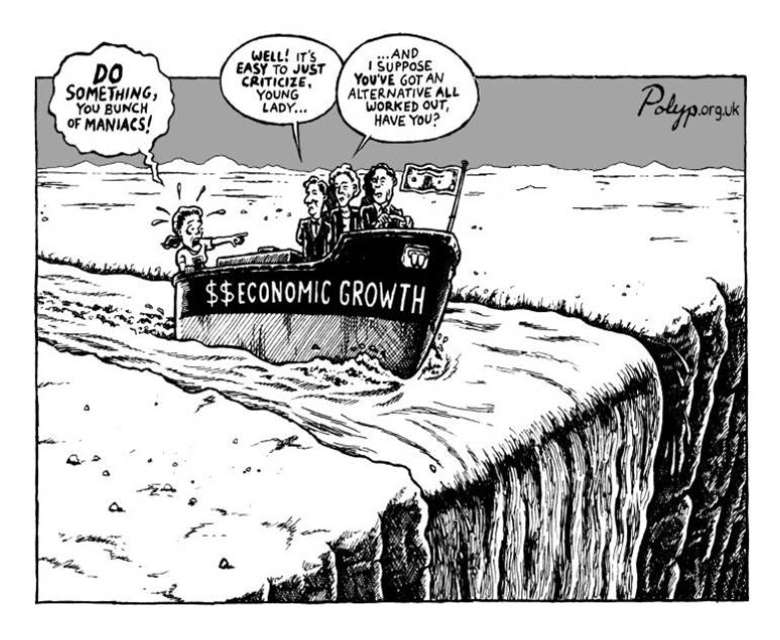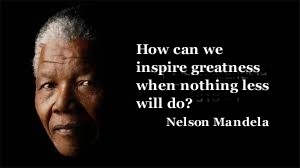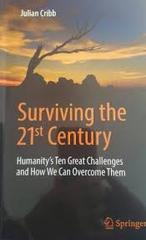Pitch
The millions of groups in the environmental-progressive movement are an underutilized resource in the effort to solve global warming.
Description
Summary
In our view, incremental changes will not suffice for solving global warming. We need to change all the factors that make global warming worse, including economic drivers, consumer psychology and industrial design – a massive societal transformation.
For this to occur we must inspire thoughtful mainstream commitment to the needed changes.
The Great Transition Initiative is a platform to support communication to reach people who do not seek out information about environmental and social trends and their consequences – i.e. the mainstream.
There are literally millions of environmental and progressive groups working for positive change. The Great Transition Initiative model is to:
- Engage as many of these groups as possible as thought catalysts and citizen educators communicating through their networks.
- Provide ready-to-use tools to make communicating as easy as possible.
Our combined networks are vast; we reach into every level of society.
We provide ready-to-use tools including sample emails, workshop outlines, guerrilla marketing tactics and Kitchen Table Conversations.
Every culture has its own unique organizing goal. The current dominating goal is economic growth. However, economic  growth depends on ever increasing industrial production and resource use, including fossil fuels. Our devotion to economic growth is destroying us.
growth depends on ever increasing industrial production and resource use, including fossil fuels. Our devotion to economic growth is destroying us.
What might an alternative goal be? We suggest: transitioning to a life-affirming global culture rather than continuing on our present course of ecological self-destruction.
This goal is an umbrella term that encompasses the multitude of positive initiatives already underway in the environmental-progressive movement. Groups can align around this overarching goal while still continuing with their specific projects.
If so, then we can align by championing ‘a life-affirming global culture’ as a meme to define a new direction for society – and follow-through by communicating to enable people to grasp the systemic changes necessary for solving global warming.
Is this proposal for a practice or a project?
Practice
What actions do you propose?
If we are to shift the culture sufficiently to reverse global warming, we must change people’s aspiration and their frameworks of understanding. Communicating to affect people’s understanding of the world is the key. We might call people who undertake to do this ‘Great Transition Catalysts’.
Here are nine things individuals and organizations can do:
1. Hold the vision that the proper goal of our time is to transition to a life-affirming global culture, rather than continuing on our present course of ecological self-destruction and social deterioration.
Even with no specific action, this attitude counts.
2. Use the meme transitioning to a life-affirming global culture in conversations. This is Marketing 101: get your brand (meme) seen everywhere.
3 Communicate about transitioning to a life affirming culture through your networks, and encourage people to act as a Great Transition Catalysts themselves. Sample emails are in the Resources section of www.InspiringTransition.net.
4 Conduct Kitchen Table Conversations. These are structured conversations that enable people to connect-the-dots and see why transformative change is imperative.
5 Engage organizations and thought leaders as Great Transition Champions. Organizations can publish their alignment with the goal of transitioning to a life-affirming global culture on their websites, and perhaps provide training for their staff to act as Great Transition Catalysts.
Alignment is sufficient. They do not have to join anything.
6 When appropriate, assert that your business and practical initiatives are contributions to the evolution of a life-affirming global culture. This is also Marketing 101: Getting our brand (meme) seen everywhere.
7 Form small teams to work together to apply communication tactics championing transitioning to a life-affirming global culture.
8 Apply guerrilla marketing tactics such as
- Putting plaques supporting the Great Transition in professional offices.
- Posters inviting people to be part of the Great Transition Initiative.
- Mentioning the Great Transition Initiative in talks on any subject.
Sample plaques are in the Resources section of www.InspiringTransition.net.
9 Accelerate cultural evolution by
- Helping people evolve their thinking from silo to systems thinking (Understanding Whole System Change).
- Teaching creative thinking skills, so that people’s thinking naturally expands beyond their familiar boundaries (Creative Conversations).
- Teaching self-help techniques to resolve emotional upsets. This will reduce the emotional drivers of excess consumption (Emotional Freedom Techniques).
- Embodying partnership-respect values in the internal operation of organisations (The Center for Partnership Studies).
- Encourage people to move to a meat free and dairy free diet, which if taken to scale would release vast tracts of land for reforestation, thus drawing down massive amounts of excess atmospheric CO2 (Climate Healers).

The purpose of the Great Transition Initiative is to inspire public commitment to transitioning to a life-affirming global culture. To the extent that we can do this, the millions of practical initiatives that are already underway, including the ones to solve global warming, will gain vastly more impetus. Conversely, if we do not inspire commitment to transformative change, we will not actually solve global warming.
Who will take these actions?
Initially the key actors are members of the environmental-progressive movement, along with environmental businesses and members of spiritual and faith communities. Ultimately the key actors are ‘everybody’. People at every level of society can, and should, contribute to the evolution of a life-affirming global culture.
Paul Ehrlich has endorsed the Great Transition Initiative, and his Communication Manager is an active member of our core team. We have colleagues in the United States, Canada, Australia and New Zealand.
As mentioned, there are millions of groups, with hundreds of millions of members. Each group does its own thing. However, it is proposed that we can make common cause at the meta-level of transitioning to a life-affirming global culture.
Often the members of these groups pay dues and/or sign petitions. We are suggesting that we can lift our game and become thought catalysts and citizen educators communicating with our personal networks and with the general public.

Where will these actions be taken?
Initially these actions will be taken by English-speaking individuals and groups in the developed world – especially the US, Canada, Australia, the United Kingdom and New Zealand. This is because our materials are in English, and although global power is shifting, these countries are still influential.
In addition, specify the country or countries where these actions will be taken.
United States
Country 2
Australia
Country 3
Canada
Country 4
United Kingdom
Country 5
New Zealand
Impact/Benefits
What impact will these actions have on greenhouse gas emissions and/or adapting to climate change?
Obviously this proposal is focused on communicating to inspire public will to reverse human inputs to global warming. We are looking at shifting public attitudes on a mass scale, rather than focusing on concrete emission reduction projects.
This is outside what appears to be Climate Co-Lab’s normal expectation, which is about concrete goals with measurable outcomes.
So I ask you to consider: will the sum of specific actions be sufficient, or is changing the aspiration and practical operation of our whole culture (whole system change) essential for success?
In practice, of course, I would say that we need both. Indeed, to the extent that we catalyze public will for transformative change the multitude of specific initiatives will gain much more impetus. This is the point of the exercise.
The Great Transition initiative – and this proposal – arose from asking a simple question: what will it take to solve global warming? Piecemeal solutions will not do it.
So I invite you – those of you who read this – to embrace the challenge of transforming our whole culture. At first sight it can seem difficult to get one’s head around this. Change a whole culture? My article Understanding Whole System Change makes this mentally manageable in ways that support transformative action at many levels.
And my article Applying design thinking to large-scale social change shows how design thinking used in engineering and architecture can be applied to catalyzing transformative social change.
What are other key benefits?
To the extent that we succeed in inspiring mainstream commitment to transitioning to a life-affirming global culture we will provide realistic hope for young people.
Young people need to see adults taking our environmental trends, including global warming, with absolute seriousness, and doing everything we can – meaning everything that is necessary – to turn things around.
The changes include applying rule of law to gradually reduce the power of an unjust power structure; fostering ecological well-being; and choosing to live materially modest lifestyles – as well as shifting out of fossil fuels and storing carbon in forests, plains and estuaries.
All of these changes will tend to make us healthier and happier.
However, getting there can seem to be a massive hurdle. People fear economic collapse. It will be a big adjustment to scale down our economy and transition to a steady-state economy, although there are benign ways to do this. What most people don’t have a clue about, so far as I can tell, is that there are at least ten massive threats that on current trends will bring down our global civilization, and the attendant misery will affect us all no matter what our economic philosophy. Science writer Julian Cribb makes the case.
So the primary benefit is avoiding otherwise sure disaster.
Costs/Challenges
What are the proposal’s projected costs?
The Great Transition Initiative is radical in its simplicity. It is not an organization in the usual sense. Designed to support individual initiative, it is closer to being a community of practice. There is no central group that directs what people do. Instead, people align with the goal – inspiring mainstream commitment to a life-affirming global culture – and just get on with it in their own way.
Tools to make communicating as easy as possible are here.
In principle this approach requires virtually no budget. It is quite inexpensive to produce flyers and other communication materials. It costs little to email our networks, and nothing to host transformative conversations.
The Great Transition Initiative is already underway.
Looking to the future, we hope to attract funding to support a team in doing outreach to engage leaders of organizations and other influential people, and to maintain a database, use social media, and the like.
Managing Director $110,000
Database and social media manager 80,000
Web development 4,000
Database operational costs 2,600
$196,600
Of course beyond this we could take on any number of staff to put on events and drive expansion.
Timeline
Cultures are ‘chaotic’ systems. This question can be interpreted as asking ‘when will we reach a tipping point?’
This is unpredictable. What is clear, as many writers have pointed out, is that unless we as a global culture go into emergency mode to reverse disastrous environmental trends (and not just global warming), we will make the planet uninhabitable for the human species. This the point of Julian Cribb’s Surviving the 21st Century, Philip Sutton’s Climate Code Red and other books.
About the author(s)
 Andrew Gaines is the instigator of the Great Transition Initiative. He lives in the Blue Mountains outside of Sydney.
Andrew Gaines is the instigator of the Great Transition Initiative. He lives in the Blue Mountains outside of Sydney.
I am interested in the question: How can we accelerate cultural evolution to a life-affirming global culture, rather than continuing on our present course of ecological self-destruction?
I have studied a variety of disciplines that can contribute to this.
- Moshe Feldenkrais provided profound insights into the neurology of improving human performance. A key Feldenkrais idea is to improve people’s ‘frameworks of understanding’.
- From futurist Riane Eisler I gained a fundamental insight into values. Eisler contrasts domination-control relating (our current predominant power structure) with partnership-respect relating (the core value of a healthy society).
- My training in philosophy and engineering at Princeton University taught me to be intellectually honest, and enabled me to appreciate engineering solutions.
- The Natural Step showed how to apply the practice of thinking from first principles.
- From Matt Taylor’s DesignShop approach I learned how to think through projects from initial vision down to practical applications.
- CASSE (Center for the Advancement of the Steady State Economy) deepened my understanding of the interconnections between the environment, economics and social well-being.
- Donella Meadows’ well-known article Places to Intervene in a System highlights the important of shifting people’s paradigms or frameworks of understanding.
- Having spent years as a psychotherapist, I recognize the importance of cultivating emotional resilience.
There are a number of writers – great thinkers – who beautifully articulate whole system change. Among them are Paul Raskin of Tellus Institute, and David Korten, author of The Great Turning – From Empire to Earth Community. However, they have no delivery system for reaching a critical mass of the general public. This, of course, is what the Great Transition Initiative is about.
Related Proposals
The Solution Revolution - A solutions-oriented movement for systemic change
This proposal is about broadly sharing the wealth of solutions already have and will generate for solving climate.
Yan Golding comments: Our task is to co-create the cultural condition for these solutions to find their deserved public recognition and material support to be taken to scale.
Yes! This fits nicely with the Great Transition Initiative of fostering the cultural conditions for doing whatever it takes to become sustainable.
ECOS-Education, Communication and Outreach Stakeholders--a new UNFCCC Community
This proposal has the interesting idea of local learning centers.
Institutionalizing a global network of “Climate Adaption and Resilience Centers"
This proposal is also about local learning centers, with the addition of high-tech graphic simulations. Brilliant!
References
Cribb, Julian (2016) Surviving the 21st Century
Cribb, Julian (2016) Can Humanity Survive the 21st Century?
Sutton, Philip and Sprat, David (2008) Climate Code Red: the case for emergency action
Raskin, Paul et al (2012) Great Transition: The promise and lure of the times ahead
Korten, David (2007) The Great Turning from Empire to Earth Community
Washington, Haydn, ed. (2016) Positive Steps to a Steady State Economy
Elliott, Liz (2017) a New Way Now: Solutions to Financial and Climate Collapse
Eisler, Riane (1988) The Chalice and the Blade
Rao, Sailesh (2016) Carbon Yoga
Krull, Julie (2016) Interview with Andrew Gaines about the Great Transition Initiative
Ehrlich, Paul et al (2017) Adding your voice to the Great Transition Initiative
Gardner, Dave (2017) Webinar on the Great Transition Initiative
Gaines, Andrew and team (2017) Statement of Alignment
Gaines, Andrew (2017) Ways of being a Great Transition Catalyst
Gaines, Andrew (2016) Big Picture Drivers of global warming training video
Gaines, Andrew (2014) Kitchen Table Conversations Manual
Gaines, Andrew (2014) Understanding Whole System Change
Gaines, Andrew (2014) Accelerating the Great Transition - Engaging mainstream commitment to a life-sustaining global culture
Gaines, Andrew (2016) Applying design thinking to large-scale social change
Gaines, Andrew (2017) Feldenkrais and Transformative Social Change
Gaines, Andrew (2008) Creative Conversations
